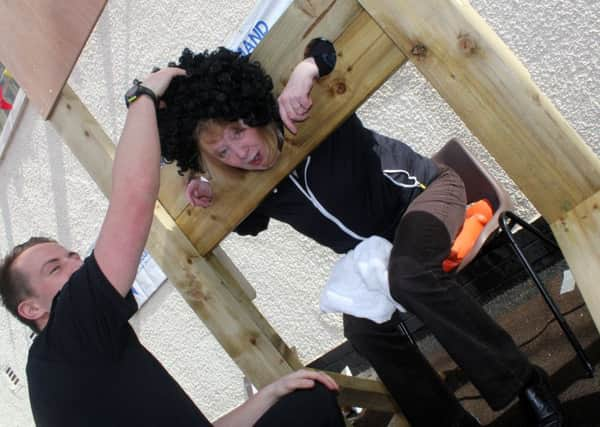Why the decline of the modern equivalent of the ‘stocks’ is bad for justice – Tom Wood


In a move that’s dripping with irony, the BBC has recently announced that they intend to expand news services to include coverage of local courts. The inability of local print media to cover this area is, the broadcaster admits, due to the collapse of local newspapers.
Now we know that there are well-documented reasons for the decline in our print media, including the loss of advertising to online platforms etc, but our national broadcaster must also take its share of the blame.
Advertisement
Hide AdAdvertisement
Hide AdTheir ‘free to access’ – or rather licence-fee subsidised – 24-hour news service has done much to undermine local news outlets operating without the benefit of state subsidy.
It may seem a fairly minor matter to some – after all just about everything has changed during the communications revolution of the internet years – but the decline of local newspapers has brought with it some serious unintended consequences.
Gone is much of the in-depth court coverage that informed the local community about who was doing what and to who.
Many local weeklies carried minutely detailed, not to say lurid, accounts of the proceedings of their local district or burgh courts.
Closures of local courts
The guilty were named and shamed and because just about the entire local population read the local paper, there was no hiding place. It wasn’t quite the stocks on the village green – but it wasn’t far short.
The disgrace and opprobrium was usually a far greater deterrent than the £2 fine for ‘urinating in a public place’.
That element of disgrace was part of the glue that brought social control – justice was not only done, it was very much seen to be done and everyone read about it.
Now the BBC is moving to further cover the gap identified by the recent Cairncross Review, which warned of a threat to democracy brought about by the reduction in the coverage of local news.
Advertisement
Hide AdAdvertisement
Hide AdSome 150 ‘local democracy’ journalists are already funded by the BBC in conjunction with local news partnerships and now more will follow to once again fully cover local lower courts.
On the face of it, this is good news, but there’s a snag. Many of the local courts that were being inadequately covered have closed in the interim. Not only is local court reporting much diminished, local justice is also in danger of disappearing.
A good example is Haddington, the burgeoning county town of East Lothian. In its long history, the Royal Burgh has never been bigger. Extensive house building is growing this charming market town out of all recognition, yet the majestic sheriff court that once dominated the centre of the town is now closed, with local justice now dispensed in Edinburgh almost 20 miles away.
It’s not just reporting of local court proceedings that is important but local justice itself. With every mile of distance, the connection between a community and its justice diminishes.
All over Scotland local courts have been closed as budgets have been squeezed. And even if purse strings are now loosened, it is unlikely that they will ever re-open.
No matter how positive this BBC initiative to enhance local court reporting is, without local courts it may already be too late.
Tom Wood is a writer and former deputy chief constable